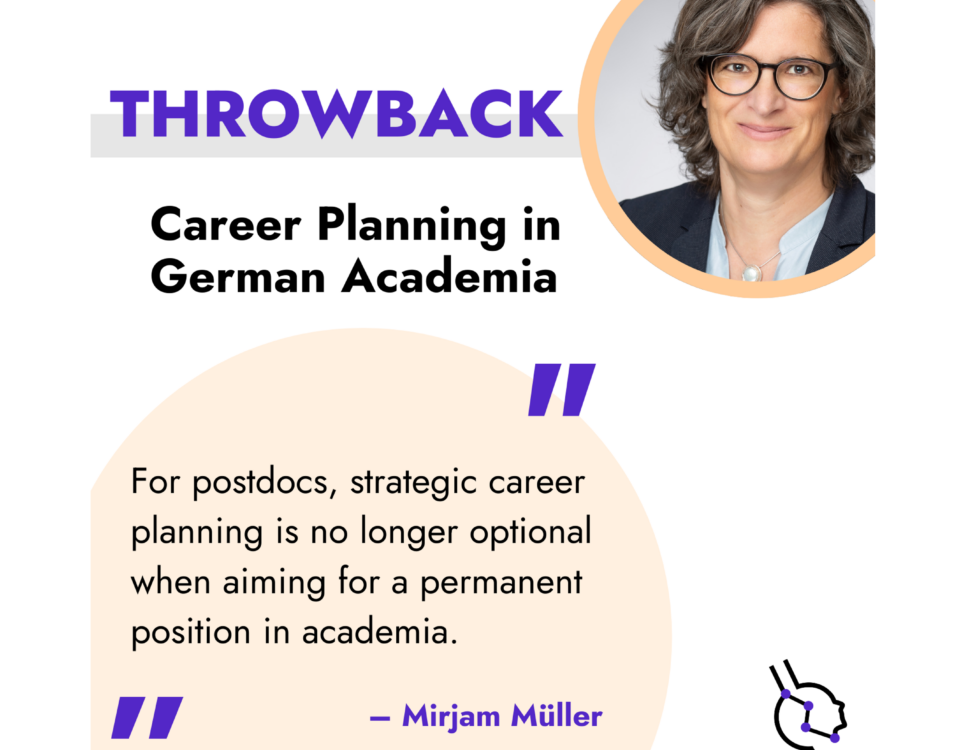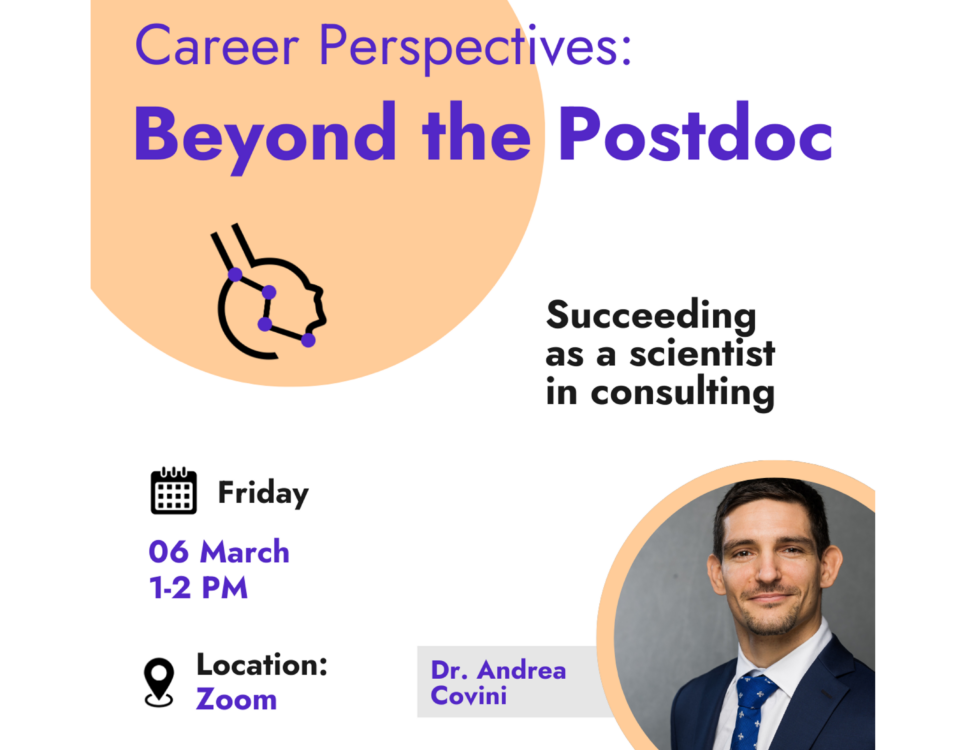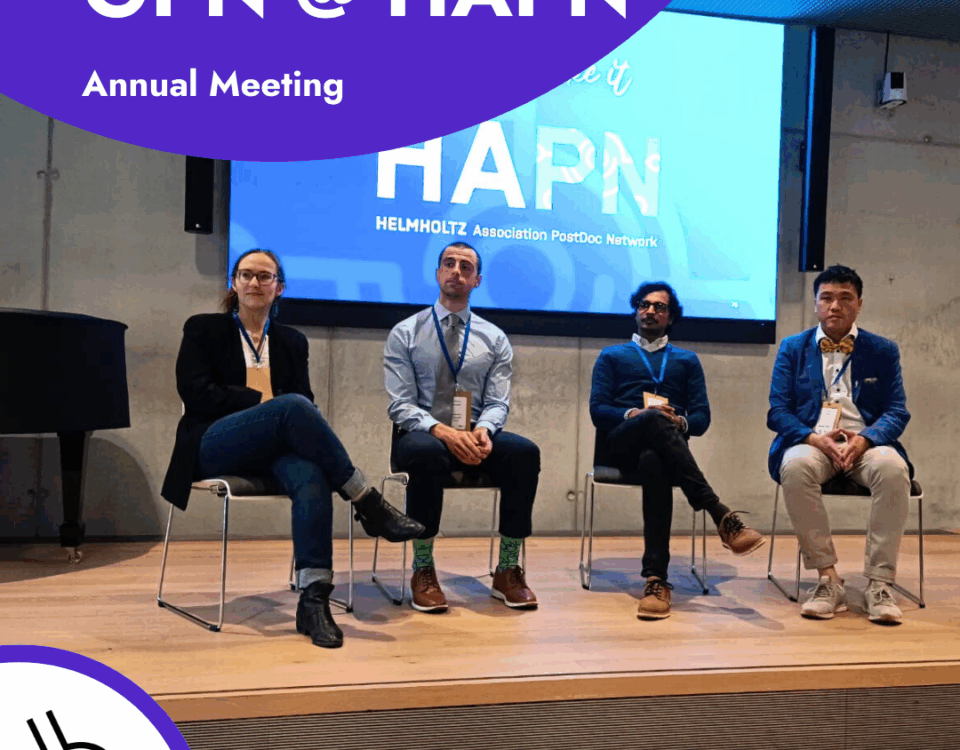Career Tools
Where do I want to go? Where do my strengths lie, and which skills do I bring? These are key questions when thinking about your next career steps. To support you in finding your path, we have created this page as a growing collection of resources for postdoctoral researchers. Here we focus on Career Tools—practical resources for self-assessment, planning, and development.
We strongly encourage you to also make use of the support available at your research institutes career center, graduate academy or postdoc office. These institutions often have experienced professionals dedicated to advising and guiding researchers. While the tools listed here can provide valuable insights, they are not a substitute for personalized coaching or career counseling.
Self-Assessment Tools
NPA Core Competencies
Description of skills and checklist for post-doctoral researchers pursuing an academic career
Rate your current level of development in each of the six NPA Core Competencies. These competencies are meant to serve as a basis for self-evaluation and for developing training opportunities that can be evaluated by mentors, institutions, and other advisors.
16 Personalities
Web-based self-assessment tool
Learn about your personality with this testing model that incorporates advances in psychometric research, combining time-tested concepts such as the Myers-Briggs Type Indicator® (MBTI®) and Big Five personality traits with accurate testing techniques.
Discover why you do things the way you do, what drives, inspires, and worries you, and learn about different personality types. Deep dive to understand your personality traits regarding job preferences, career values, motivation, etc.
VIA Inventory of Strength
Online version of a self-assessment of character strengths tool
Identify your profile of character strengths with the VIA Inventory of Strengths (VIA-IS), a scientific psychological assessment measure developed by researchers in the field of Positive Psychology.
The tool identifies the top 5 character strengths that you draw the most energy from, that represent you from your personal best – and that you may want to focus and build on.
HIGH5 Strengths Test
Online test assessing your top 5 strengths, useful when preparing for job interviews
Discover your unique strengths profile. Being aware of your top strengths will help you focus on strengths instead of weaknesses, apply them on a regular basis, derive potential careers from them and communicate them during a job application phase.
ResearchComp
ResearchComp is an online tool developed by the European Commission against the background of the European Competence Framework for Researchers. Researchers can use the tool to systematically assess their own skills: It serves as a means of self-reflection, based on the respective R levels of the framework, and can help to identify areas for development or prepare for staff development meetings.
Online Self-Assessment Tool of the Berlin University Alliance (BUA)
The Online Competence Tool of the BUA Postdoc Academy supports early- and mid-career researchers in assessing transferable competencies. This tool provides a platform for individual reflection on skills such as personal competencies, project management, and leadership skills. By using the tool repeatedly, researchers can track their progress over time.
Career Path Exploration Tools
Online Career Platform
This learning platform based in Austria derives from US-American slang meaning: “What do you do?”. Its goal is to support young professionals in their career orientation with currently over 6.200 Video-Stories of professionals from diverse fields and hierarchy levels. The strengths- and interest tests offered include job-matching too.
InterSECT Job Simulations (JobSims) is an online platform that allows Junior Scientists, regardless of professional stage, to explore future career options. The platform allows true-to-life job simulation exercises. They contain background and directions to complete tasks related to the career of interest.
You can begin with a one-hour exercise and continue with more in-depth exercises. This tool can serve as a mini-internship, although it obviously cannot provide first-hand contact with people and the overall culture of a company or branch.
Discover Careers beyond Academia
EURAXESS online guide on careers in sectors outside of academia. The guide is addressed to early-stage researchers and includes sections on sector information, jobs & competencies, career planning and career stories.
The UK's biggest website for graduate careers. Description of a variety of roles arranged by sector for browsing.
E-books
An e-book targeted at those considering or at an early stage of an academic career.
This e-book helps you explore your options outside of academia and identify your transferable skills.
E-book targeting PhDs wishing to transition into industry.
Top 20 Industry Positions for PhDs
This e-book helps you explore options outside of academia. Direct download
Booklets by Science Careers (Science Journal AAAS)
A series of booklets (PDF) by highly qualified individuals, covering the basics and more advanced matters around pursuing a career in science.
2018 Career Handbook
Booklet: "From Undergrad to Postdoc"
Booklet: "Career Trends: Industry or Academia: Where do I fit in?"
Booklet: "Career Trends: Careers Away from the Bench"
Booklet: "Finding Your Personal Job Chemistry"
Career Profiles
With its online platform "Berufenet", the German Unemployment Agency (Deutsche Arbeitsagentur) offers you in-depth portraits of multiple careers. You can start your search by professional fields, fields of activity, your study subject or by an alphabetic search. The platform is in German language only.
Career Profiles by Research Careers
A collection of profiles of people who made the transition from research into a non-academic job.
Career Testimonials
The editors of this website consist of volunteer PhD students and research staff working in partnership with the University of Oxford’s Careers Service. They source career profiles from a range of fascinating sectors written by researchers with backgrounds spanning the humanities, social sciences, physical and life sciences. Profiles can be sorted by degree, sector and when the person left academia.
Podcast
This podcast explores the bridge between industry and academia to understand how basic scientific findings take shape in products and strategies. They also follow the career paths of researchers who are both within academia and outside.
Skill Development Tools
Booklets by Science Careers (Science Journal AAAS)
A series of booklets (PDF) by highly qualified individuals, covering the basics and more advanced matters around pursuing a career in science.
Booklet: "Building Relationships"
Booklet: "Transferring Your Skills"
MOOCs (Massive Open Online Courses)
Massive Open Online Courses (MOOCs) are interactive open online courses that offer you a wide range of further education courses held online and designed by Universities worldwide. Courses often can be taken free of charge. Gaining certification through the courses is usually fee-based.
Coursera
EdX
Udemy
FutureLearn
Udacity
LMU MOOCs, Podcasts and more
TUM MOOCs
Podcast
Difference between Mentoring, Coaching, Supervising
In this Nature Podcast you will learn about the tools, roles and techniques that help researchers to reach career goals. You will learn about scientific mentors, how they compare with the support offered by academic supervisors and how in contrast, career coaches can support you in developing career transition skills and more.
Article
Supervising Master students is a great way for PhD researchers and PostDocs to gain leadership skills. This Nature article gives insights into making the best out of the opportunity to supervise Master students.
Teaching as a Skill and a Career
This Science article suggests a range of best-of-articles on teaching. Those articles range from how to develop and improve teaching within academia. There are also articles for those who want to leave research entirely to pursue their love of teaching suggesting ways into full-time school teaching.
Action Planning Tools
Articles
Guide on how to prepare for academic job interviews, including sample academic interview questions and hints to interview presentations.
How to write a cover letter in 2021
A comprehensive guide on how to write a contemporary cover letter, drawing on aspects such as storytelling and visuality. Contains practical graphics on the structure of a cover letter.
How to convert a CV into a resume
A curriculum vitae (CV) offers a complete career history whereas a resume, in contrast, offers an annotated and abridged career summary. A CV works well in academic settings worldwide and is the standard application document for non-academic jobs in Germany and many European countries. In the USA, there is a big difference between a resume and a CV: a resume is what would be called a CV in the UK and a CV is used only in academic contexts.
This Nature article explains how to convert a CV into a resume.
Time to Rethink the Scientific CV
This Nature Career feature Article (2022) reviews fresh formats that showcase researchers’ work more effectively.
Webcast
Video resources on Youtube for behavioural interviewing, also sample answers. Big Interview is an online interview training system used by over 600 universities, government agencies and libraries.
How to write a great CV for academia and industry
In this two-part webcast, from Nature’s webinar programme, Sarah Blackford, an academic careers adviser at BioScience Careers, runs through some top techniques for developing a CV and targeting specific job applications, before assessing and giving feedback on some example CVs.
Booklet
Transforming Your CV to a Resume
Booklet by the Center for Career Development at Princeton University including a Worksheet on identifying Key Transferable Skills and Accomplishment Statements, including sample statements & tips on transforming research "jargon" and a list of action verbs. The sample resume would have to be adapted to the German-speaking market.
Video Clip
A narrative CV is defined by the Declaration on Research Assessment (DORA) as a CV format that provides a structured written description of a person's contributions and achievements that reflects a broad range of relevant skills and experiences, more than can often be seen in a traditional academic CV.
Learn in this Clip What a narrative CV is, why you would write one and how you write one.
You are not alone!
Reach out to your career center, graduate academy or postdoc office for personalised coaching and career counseling!
Disclaimer and Acknowledgement
Large parts of the selection of career development tools provided on this page were compiled by the Career Center of Helmholtz Munich, and we are grateful for their generous permission to share and adapt this material. Our special thanks go to Nicola Bauer and Meike Rottermann, who developed this collection. Both are experienced career coaches and also work independently. You are welcome to contact them directly for individual coaching support.
Please note that while we aim to keep this list relevant and up to date, we are not responsible for the content of external websites linked here. The inclusion of any external link does not imply endorsement of the content or services offered.









